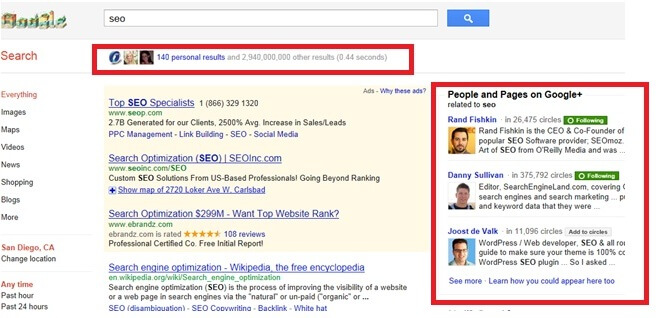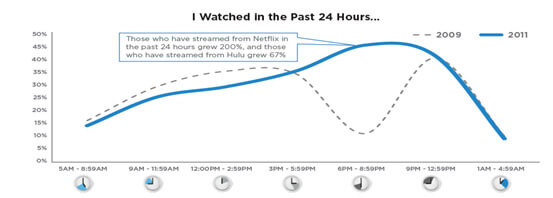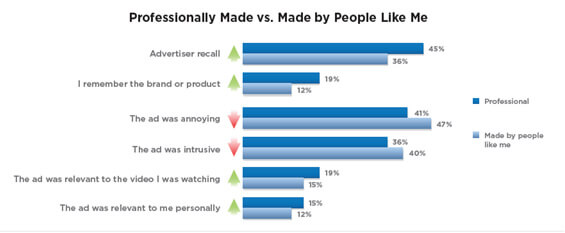GOOGLE LAUNCHES SEARCH PLUS YOUR WORLD, BUT WITH RAMIFICATIONS
It should come as no surprise that search is becoming more social. Since web 2.0 has arrived, individuals had no problem bringing their social lives online; it only seems practical that social and personalized results should manifest in normal search results as well. With the recent launch of Google’s ‘Search, Plus Your World’, we are beginning to see just that, but with some controversy.
Google’s Search Plus Your World, which for blogging purposes will be referred to as SPYW, now incorporates results from Google+ for users who are logged into Google. While it is a great idea to connect searchers with social results, Google is getting slammed for favoring their platform Google+, which is undeniably true.

Now, when conducting a Google search, you have the option of viewing personalized results up top and on the right-hand side of the results, Google suggests people/pages on Google+ to add to your circles. The suggested pages to add, mind you, are all from Google+. We have yet to see any suggestions for Facebook or Twitter pages. The same goes for the results. If you decide to follow the link to your personalized results, you will find that 90% of the results are people or articles for Google+, the other 10% is Youtube. And Google wonders why they’re being accused of nepotism?
Some are not taking very kindly to this change. Twitter says that SPYW is “bad” for web users and makes it more difficult for searches to find relevant information. Relevancy is a main argument against the new SPYW. In his recent post, Danny Sullivan says:
“Google’s job as a search engine is to direct searchers to the most relevant information on the web, not just to information that it has its own particular interest in.”
Many webmasters and SEOs are speaking up, saying that Google’s bias is getting in the way of their job to deliver what is most relevant, regardless of whether the results are from competition or not. Some even go far enough to refer to SPYW as spam, like SEO Book’s tweet:
“After Google flooded the SERPs with inferior & marginally relevant Google+ junk, are spam debates even relevant at this point?”
Matt Cutts, head of the web spam team at Google responded to comments about SPYW on his own personal blog, saying “Search plus Your World does surface public content from the open web, not just content from Google+.” If surfacing public content means maybe including another result other than Google+ or Youtube every now and then, then Matt Cutt’s is right on the money.
It will be interesting to see how this continues to play out. Hopefully, Google will begin to incorporate other social media sites into the results as well as pages suggestions, because when it comes down to it, social search is awesome. When it’s done fairly, incorporating social results reinforces everything we already love about the web: convenience, relevant results, and now, a new way to stay connected to what we care about most.
Questions? Comments? Contact your SEO Agency to understand more about SPYW and the implications for your website.
Submitted by Erica Machin, Titan Growth




